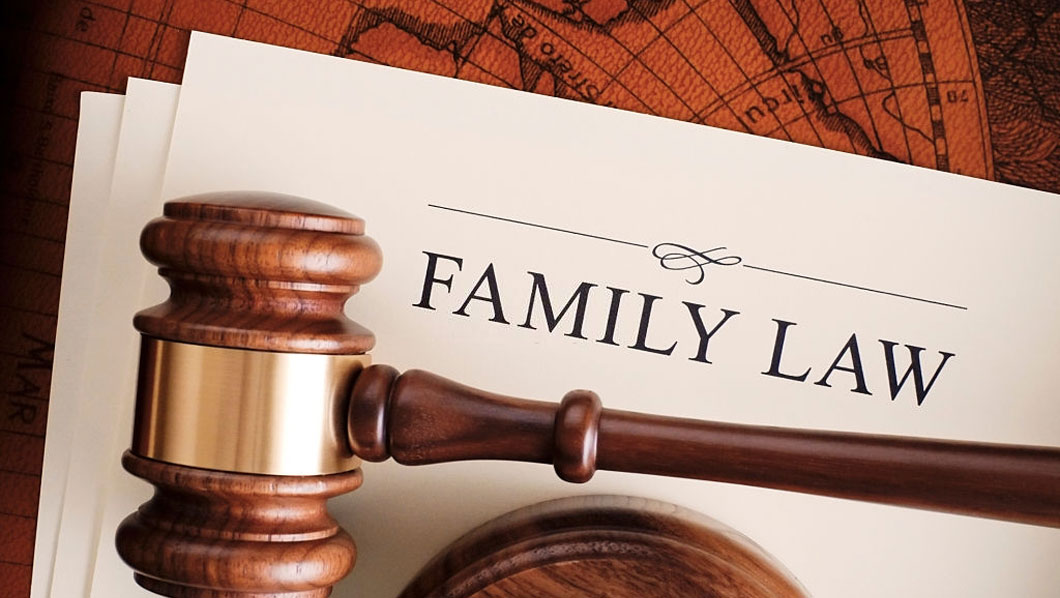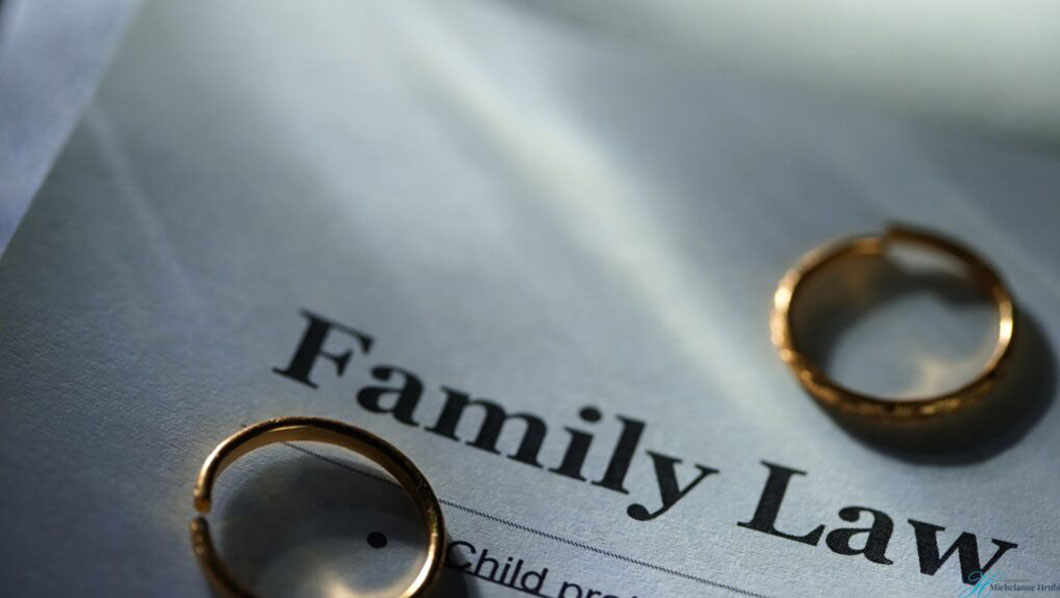Family Law FAQ
Family Law FAQ

Family law is a unique area of the civil court system. It can be daunting and confusing the first time you encounter a legal dispute based on family law. Whether you’re planning a divorce, need to arrange an adoption of a stepchild, or have questions about your child custody arrangement, family law can be confusing without reliable guidance.
At Law Offices of Michelanne Hrubic, our Riverside family lawyer helps to answer the questions people have regarding various aspects of family law. Below are some of the questions that we encounter frequently. It is important to keep in mind that everyone’s situation is unique and nothing can replace the knowledgeable advice that you receive from meeting with a lawyer. To schedule a consultation at our law firm in Riverside, call 951-888-0631.
Is it necessary to hire an attorney for a divorce?
When both parties are in agreement with most issues in a divorce case, it can seem like hiring an attorney is overkill. However, a divorce is still a legal process, and it is important to ensure that your rights and interests are protected. A divorce agreement that is reached without the assistance of an attorney runs the risk of being unfair to one of the parties and may require extensive legal help in the future to correct any errors. It’s always best to err on the side of caution to save yourself the time and expense of a legal battle further down the line.
Why might I end up back in court about my divorce once the decree is finalized?
Family law is unique in that it allows those involved in family court matters to revisit certain aspects of the decrees issued for their legal matters. For example, it’s possible for parents who participate in joint custody agreements to petition the court for changes to these agreements if they feel conditions have changed and warrant adjustment of the custody order. It’s also possible to revisit divorce decrees for spousal support arrangements or property division determinations. Some people need to return to family court after divorce to account for missed child support payments or other violations of existing divorce orders.
My ex is not paying the required amount of child support. What do I do?
If your ex is not paying the full amount, or has stopped making child support payments altogether, you can seek enforcement actions with the help of an attorney. The threat of enforcement may be enough to get things going again. If not, options may include getting a court order to garnish your ex’s wages, or, if all else fails, requesting that the court find your ex in contempt, which may result in jail time.
While having your ex thrown in jail may sound like a good idea, remember that if a parent paying child support is in jail, they will be unable to make their support payments in most cases. Our firm aims to resolve unpaid child support issues as swiftly and painlessly as possible. In many cases, the simple act of having a reliable Riverside family attorney reach out to a non-paying parent can be enough to encourage payments to resume as required.
I have custody of my child. Can I move out of state?
A custody and visitation plan does not necessarily mean that you must stay in the same location until the child is an adult. However, if you have physical custody and wish to relocate, you need to notify the other parent. You may also need to modify the terms of your agreement through the court to reflect this change. You should never decide to pack up and move on your own. Doing so can have disastrous legal consequences. That is why it is important to seek legal counsel to explore your options.
How does California handle joint custody?
If the court deems both spouses are adequate parents, it tends to follow that the court will want the children to have as close to equal access to both of their parents as possible. If divorcing parents both remain living in the same area and are equally capable of getting their kids to school and required appointments, then an exact 50/50 custody split could be the court’s preference.
It’s not uncommon for physical custody agreements to consist of 60/40, 70/30, or even 80/20 splits. In some cases, children may spend the school year with one parent and their summers with the other, or parents may rotate physical custody on a weekly or split-week basis.
What is the fastest way to divorce in California?
The family court system of California has a duty to ensure every divorce is processed legally. All questions related to child custody, property division, and long-term support or maintenance are fully answered. The divorce process can take months or even years in some cases, especially for hotly contested divorce cases. However, if a divorcing couple meets certain criteria, they may qualify for a summary dissolution.
A summary dissolution in California is possible if divorcing spouses have no children, own minimal community property, and ultimately agree to the terms of the divorce they have proposed. As long as the couple meets all necessary residency requirements, they can obtain a summary dissolution and officially divorce in a more expedited manner.
Will I need an attorney for an adoption?
If you or your spouse intends to legally adopt a child, the process is relatively straightforward. However, it is still advisable to connect with a Riverside family lawyer who can help you navigate the process. Adoption typically requires the consent of the biological parent and relinquishment of their parental rights, and securing these documents is not always easy. Your attorney can help you gather the documentation you’ll need to complete your adoption and ensure that all the paperwork involved in the process is complete and accurate. An experienced attorney can also assist with name changes and procuring updated personal documents like birth certificates and Social Security cards.
Can I expect spousal support or alimony in my pending divorce?
California courts strive for equitable divorce decrees. If one divorcing spouse earns significantly more than the other, or if one of the divorcing spouses gave up a career to be a parent and homemaker while married, the court will consider factors like these to determine whether spousal support or alimony is appropriate and necessary. These arrangements exist to help a divorcing spouse maintain a suitable quality of life and handle the expenses of transitioning to independent living. In some cases, the court may require a temporary spousal support arrangement that lasts until the divorce is finalized, and the property distribution process typically ensures both spouses have equivalent financial footing when they finally divorce. Alimony or spousal support may continue if the recipient spouse needs time to further their education or obtain the necessary credentials to secure gainful employment.
The court will also consider factors such as the ages and overall health of the divorcing spouses and the likelihood of future tax issues and other financial concerns. If a couple divorces at an older age and one of the spouses is unable to work, they may receive alimony indefinitely.
My ex got remarried. Do I still need to pay alimony?
In any divorce case involving alimony or spousal support, the divorce decree will include terms and conditions for the alimony or support arrangement. This section will outline terminating actions that a recipient spouse may perform that would cancel the paying spouse’s obligation to continue payments. For example, the divorce decree may define terminating actions as remarrying or cohabitating with a new intimate partner. If your ex remarried and you believe that this is a terminating action for your alimony or spousal support arrangement, a Riverside family lawyer can review your divorce decree and determine your options.
My kids’ other parent is threatening to take them away. What can I do?
If you and your ex have a child custody and/or child support arrangement, it is essential for both of you to adhere to the terms of these arrangements to the letter. If a parent attempts to use their children or their custody rights as leverage against their ex for any reason, they risk causing many serious consequences. This can not only damage the parent’s relationship with their children and strain their ability to have amicable relations with their ex but also lead to legal penalties for violating a custody or support order.
In the event your ex threatens to do anything that would violate the terms of your divorce order, a Riverside family attorney can help you determine the best steps to take to prevent them from violating the order. Any parent who violates a child support or child custody agreement risks losing their parental rights and parenting time and other legal penalties. Your Riverside family lawyer can guide you through the process of holding your ex accountable for violations of your divorce order.
Contact Us With Your Family Law Questions

We can help answer all of your family law questions. Call 951-888-0631 or contact us online to schedule an initial consultation. From our offices in Riverside, we provide legal counsel to people throughout Southern California.
Contact Law Offices Of Michelanne Hrubic
How Can We Help You?
Fields Marked With An ” *” Are Required
"*" indicates required fields


